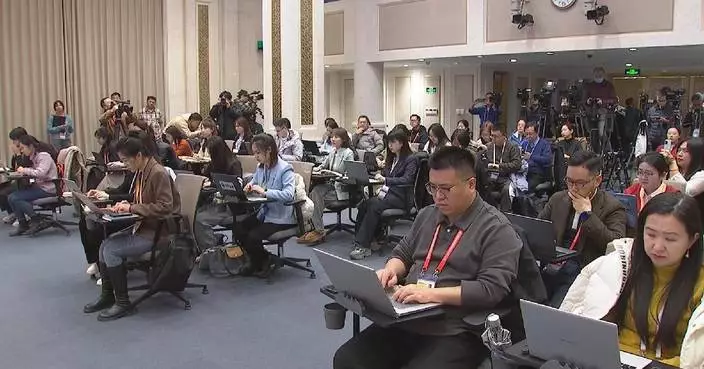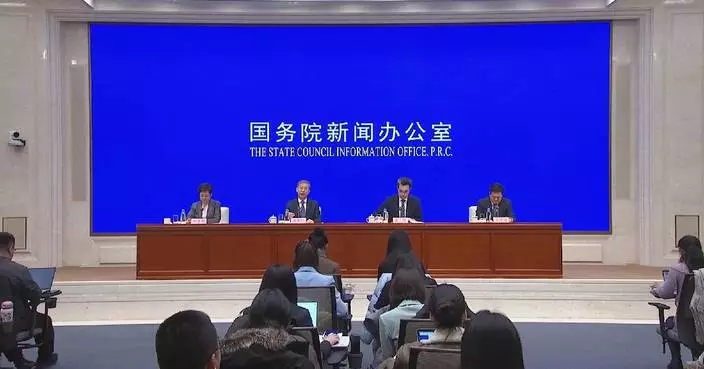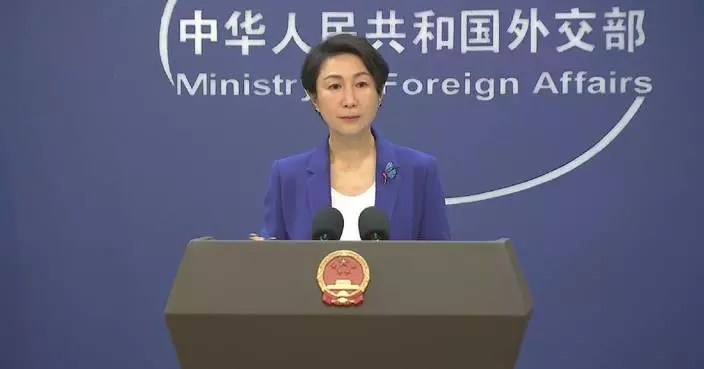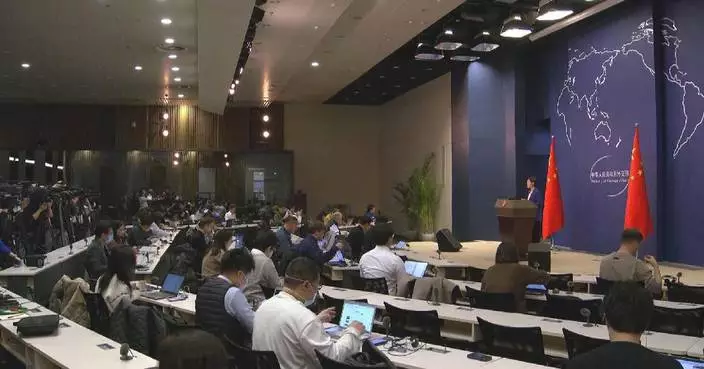The Ha Mpiti-Sehlabathebe Road, one of the key projects of the China-Lesotho cooperation under the Belt and Road Initiative, has entered its final stages of construction.
Nestled in the southeastern part of Africa, Lesotho is known as the "Kingdom in the Sky" with high mountains and narrow valleys.
In 2019, Lesotho signed a memorandum of understanding with China to jointly develop the Belt and Road Initiative, and the road is an important project in this collaboration. Located in the Qacha's Nek District in the country's eastern part, the road spans 91.48 kilometers and aims to transform the existing gravel mountain roads into high-quality asphalt ones.
"On this mountainous terrain in Lesotho, the roads are rugged and winding. Moreover, our supplies are procured from over 800 kilometers away, posing significant challenges for material transportation," said Zhang Jingbo, project manager of the project.
Meanwhile, the construction of the road faced tremendous difficulties due to its highest altitude exceeding 2,600 meters.
"It's been a very challenging project. Obviously, the terrain is difficult. It's mountainous terrain. We've had a lot of challenges with design issues and also changing designs," said Gary Swart, resident engineer of the project.
The road has transformed the previously bumpy and uneven paths into a 9-meter-wide two-lane asphalt road in both directions, which will significantly reduce travel time for nearby residents.
"Before it was constructed, it was not easy for these business cars, like we can talk about the taxis and the buses, it would take you maybe from town to Ha-Mahlali (one of the local villages), it would take about two hours to travel here, but since it was constructed, it now takes just 20 minutes from town to Ha-Mahlali," said Hlonelang Masupha, a villager.
The road connects to the Sehlabathebe National Park, a World Heritage Site in Lesotho, and the opening of the project will greatly boost the development of accommodation, dining, and transportation industries in the surrounding areas.
"These projects play a crucial role in Lesotho's economic and social development and improvement of people's livelihoods. They are highly welcomed by the Lesotho government and people, reflecting the profound friendship between the people of China and Lesotho," said Lei Kezhong, Chinese Ambassador to Lesotho.

China-funded road project facilitates economic development in Lesotho

China-funded road project facilitates economic development in Lesotho
China remains resolute in its pursuit of the dual-carbon goals of carbon peaking and carbon neutrality, positioning the green transition as a core driver of high-quality development, according to Zhao Chenxin, vice chairman of the National Development and Reform Commission.
Speaking at a press conference on Friday in Beijing, Zhao outlined significant achievements in 2024 and provided a roadmap for 2025, which includes advancing carbon reduction initiatives, strengthening green industries, and enhancing ecological protection efforts.
"We've rolled out guidelines for accelerating the green transformation of our economy and society and advancing nearly 200 specific initiatives. We've also released a catalog of industries supporting this transition, promoting 112 green technologies and 47 advanced low-carbon projects. We've developed a two-year action plan for energy conservation and carbon reduction, along with seven sector-specific plans, achieving significant progress. It is predicted that we reduced energy consumption intensity by over 3 percent last year, surpassing our targets. Additionally, we’ve implemented 194 national standards in the 'dual-carbon' field and supporting local governments in establishing carbon emission budget systems," Zhao said.
Zhao also emphasized that efforts in resource conservation and ecological protection continued to gain momentum.
"We've rolled out policies on promoting food conservation, reducing food waste, developing water-saving industries, and encouraging waste recycling. More than 60 billion yuan (about 8.2 billion U.S. dollars) of government funding has been allocated to enhance environmental infrastructure and support major ecosystem protection and restoration projects, including the 'Three-North Shelterbelt Forest Program'. Additionally, we've formulated the Ecological Protection Compensation Regulations, and increased the annual funding of central and local governments to nearly 300 billion yuan (over 41 billion U.S. dollars)," Zhao added.
In addition, significant attention was given to programs aimed at large-scale equipment upgrades and consumer goods trade-ins.
"In 2024, we allocated 300 billion yuan in ultra-long-term special treasury bonds to support large-scale equipment upgrades and consumer goods trade-in programs. In the first 11 months of the year, national investment in equipment and tool procurement rose 15.8 percent year on year, contributing 65.3 percent to overall investment growth. Through the trade-in program, over 60 percent of consumers chose new energy vehicles, driving the domestic penetration rate of new energy passenger cars to over 50 percent for six consecutive months," Zhao explained.
Looking ahead, China will mark two major milestones in 2025 - the 20th anniversary of Chinese President Xi Jinping introducing the concept that 'lucid waters and lush mountains are invaluable assets,' and the fifth year since China announced its dual-carbon goals.
Zhao said that the commission will continue to work with relevant stakeholders and prioritize these efforts by advancing carbon reduction, pollution control, green growth, and ecological expansion, while accelerating the comprehensive green transformation of the economy and society.
"We will actively plan the carbon peaking initiatives for the 15th Five-Year Plan (2026-2030), develop integrated evaluation and assessment methods, advance national carbon peaking pilot projects, and accelerate the building of zero-carbon industrial parks. We will further strengthen fiscal, financial, investment, and pricing policies and standards to foster the healthy development of green and low-carbon industries," Zhao stated.
"We will continue to enhance environmental infrastructure, implement major ecosystem protection and restoration projects, and explore mechanisms to realize the value of ecological products. We will work to achieve greater results in promoting the programs of large-scale equipment upgrades and consumer goods trade-in, so as to increase funding, broaden coverage, optimize the implementation of the policies, and amplify their leverage effects in 2025," Zhao concluded.
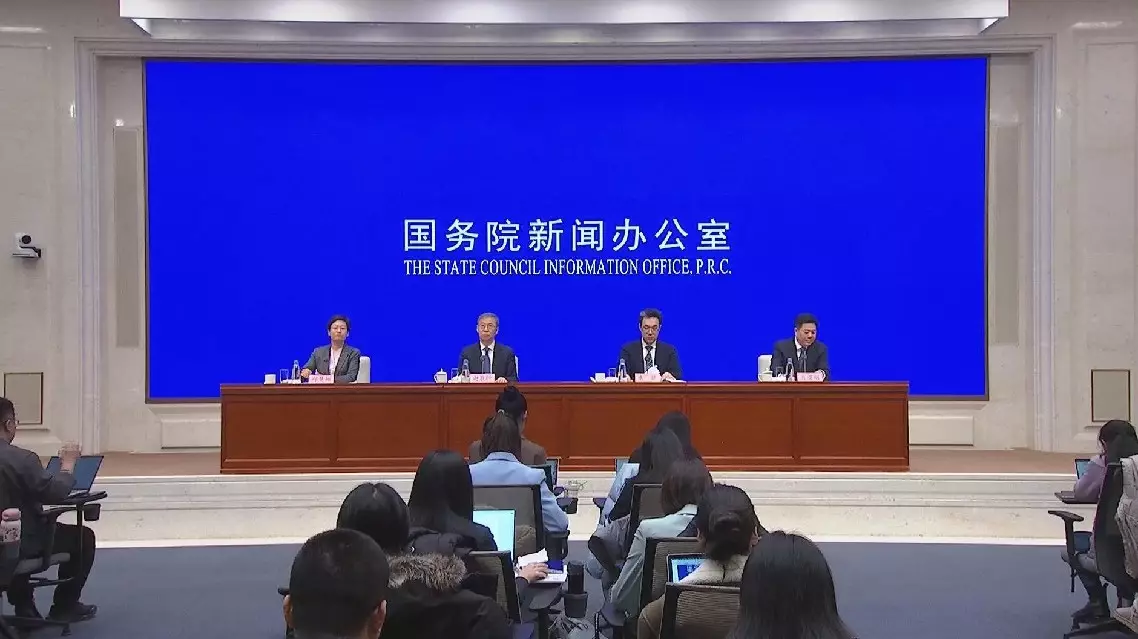
China reaffirms commitment to green transition and dual-carbon goals: NDRC







